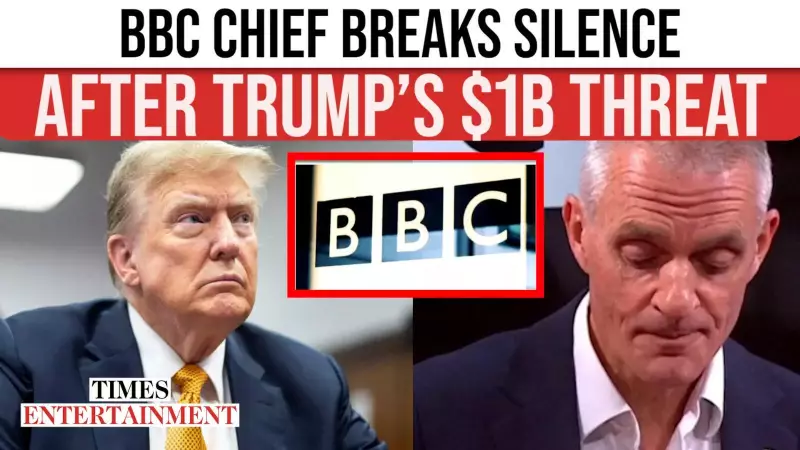
BBC Director-General Breaks Silence Over Trump Legal Threat
BBC Director-General Tim Davie has finally broken his silence amidst growing pressure from former US President Donald Trump, who has threatened to file a massive $1 billion lawsuit against the British broadcaster. The controversy stems from the BBC documentary titled "Trump: A Second Chance?" which aired recently and has sparked international attention.
The legal confrontation escalated when Trump's legal team accused the BBC of employing "deceptive editing" techniques in their documentary about the former president. Specifically, the allegations focus on how the broadcaster edited Trump's January 6 speech, making it appear as though he explicitly encouraged violence during the Capitol riots.
BBC's Admission of Error and Ongoing Controversy
In a significant development, the BBC has officially apologized for their editorial decisions, characterizing the incident as an "error of judgment" that should not have occurred. Tim Davie, while addressing the situation, acknowledged that the network had "made mistakes that have cost us" in terms of credibility and public trust.
Despite the admission of fault, Davie struck a defiant tone when discussing the broader implications for journalism. He passionately urged journalists worldwide to "fight for journalism" and expressed serious concerns about what he described as the increasing "weaponisation" of free press principles in political conflicts.
Standing Firm Amid Political Pressure
Davie remained resolute in his defense of the BBC as an institution, calling it a "unique and precious organisation" that continues to uphold journalistic standards despite the current controversy. His statements come at a crucial time as the UK government prepares to weigh in on the escalating dispute between the broadcaster and the former US president.
The situation continues to develop rapidly, with political observers watching closely how this high-profile confrontation between a global media giant and a powerful political figure will unfold. The outcome could have significant implications for international media freedom and the boundaries of documentary journalism.





